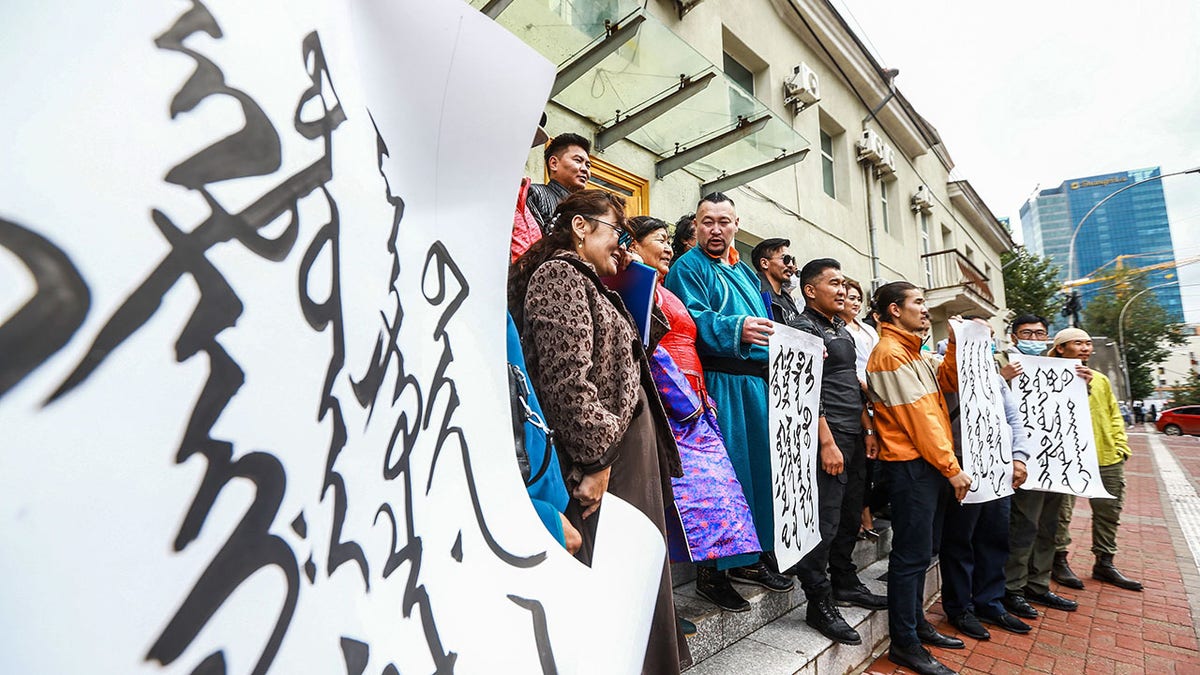Fox News Flash top headlines for September 1
Fox News Flash top headlines are here. Check out what's clicking on Foxnews.com.
Ethnic Mongolians staged protests in northern China this week over Beijing’s new policy to gradually replace their native language with Mandarin in several school subjects.
The policy will affect politics, history, and language and literature subjects taught in schools throughout China’s Inner Mongolia autonomous region, the BBC reported.
INDIA ACCUSES CHINA'S MILITARY OF 'PROVOCATIVE' MOVEMENTS NEAR DISPUTED BORDER
Many of the ethnic Mongol minority fear the transition from the Mongolian language to Mandarin, China’s official language, will destroy their cultural identity and force them to assimilate into the majority Han Chinese culture.
In protest of the move, parents threatened to keep their children home from school while crowds demonstrated outside schools in the region, according to national reports.

Mongolians protest at the Ministry of Foreign Affairs in Ulaanbaatar, the capital of Mongolia, against China's plan to introduce Mandarin-only classes at schools in the neighboring Chinese province of Inner Mongolia on Monday. (Photo by Byambasuren Byamba-Ochir/AFP via Getty Images)
Temtsiltu Shobtsood, chairman of an exile group called the Inner Mongolian People's Party, said the policy was a form of “cultural genocide.”
"The whole world is talking about human rights, but we are not visible enough," he told the BBC from Germany.
STATE DEPARTMENT RENEWS SCRUTINY OF CHINA AMID REPORT OF UIGHUR INFANTICIDE, FORCED ABORTIONS
China has said the requirement of Mandarin was to ensure a high standard of textbooks and curriculum and to pursue a common identity through shared language, the Guardian reported.
However, Enghebatu Togochog, director of the U.S.-based Southern Mongolian Human Rights Information Center, told the outlet that the people of Inner Mongolia view their language as one of the last remaining pieces of their culture that have been targeted for decades.
CLICK HERE TO GET THE FOX NEWS APP
“In the past 70 years Mongolian people have gone through a lot, including genocide, political oppression, economic exploitation, cultural assimilation, and environmental destruction,” he said. “So after 70 years of China’s heavy-handed policy, the Mongolian language is the last remaining symbol of Mongolia.”









































